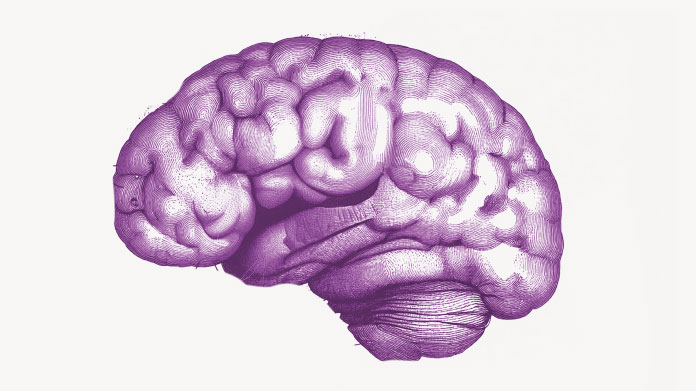How can you preserve your memory?
Are you worried about memory problems and memory loss? Of course you are. But are you using your memory enough and are you taking the proper daily steps to preserve it?

Stimulate your memory every day
The more you preserve your memory, the better it will function. There are, of course, exercises that you can do regularly (you can find them easily in specialized books or online). But you can also use your memory as part of your daily routine, whether at home (remembering a culinary recipe) or at work (a colleague’s mailing address). How and what you memorize isn’t so important; what matters is varying the methods you use to learn and achieve progress (remembering a list of five objects, then six, seven, etc.).
Practical steps
Shopping lists, telephone numbers, appointment dates and times, or poetry, songs, and theater all provide opportunities to use your memory that you should seize. If you need help to memorize things better, use a paper and pencil rather than a computer or a smartphone. A study showed that memory is more effective when we’ve written something down.
Move!
Physical activity is essential to maintaining overall equilibrium. But it also produces physical benefits that free the spirit (we can talk to a friend while running, for example), which is great for memory. Several published studies have found that exercise has a direct impact on memory. Engaging in physical activity allows you to develop your memory and maintain a high capacity to memorize detail as you grow older.
Practical steps
Engage in regular physical activity (at least 2-3 times per week), preferably an activity that you can do outdoors.
Eat a balanced diet
Diet and memory? They are connected, and much more than you think. A diet that satisfies your energy needs, including plenty of vitamins and minerals, and harnesses the power of antioxidants, helps you preserve healthy neurons and limit cognitive decline and memory loss. Certain nutrients, such as choline or essential fatty acids (especially omega-3), have the power to enhance neurons and memory.
Practical steps
Eat at least five fruits and vegetables per day to fight oxidative stress and cellular aging. Choose foods rich in omega-3 and choline (you can also take supplements) such as fatty fishes, wheat germ, almonds, and broccoli. Limit saturated fats (such as cold cuts, butter and cream) and sugars. Drink plenty of fluids.
Maintain an enriching social life
Contacts, discussions, debates: participating actively in intellectual stimulation and psychological wellness are two ways to promote good memorization and limit memory problems.
Practical steps
You can join a club or an organization. Taking advantage of cultural events in your city (such as conferences or exhibits)opens you to new horizons. Board and memorization games can also provide opportunities for very interesting discussions that can enhance memory.
Sleep and relieve stress
Lack of sleep, like any form of stress, is a neurological disruption that can impair cognitive abilities and thus have an impact on memory. The risk? Lack of sleep can lead to frequent memory loss and impaired ability to memorize. Furthermore, memory consolidation mechanisms are at work while you’re sleeping as we can see in children: they are learning so many things that they need more sleep.
Practical steps
Go to bed at a regular hour, in a temperate room, and always sleep between seven and eight hours a night. Practice relaxing activities in the evening (such as yoga or sophrology) to relieve stress.
Keywords
3 Days
My skin is clearing up nicely!
Pretty good for my skin so far.
Christian
6 Days
The new packaging is excellent
The new packaging is excellent - finally! No more squashed boxes and torn envelopes.
GORAN
6 Days
Great Product
Great Product
Larry Garrett
11 Days
Quick shipping
Quick shipping; good price. No issues!
Mary McCarty
12 Days
Thr product is very good and is helping…
Thr product is very good and is helping me on my health. Then is always on time
LUGO Luz
15 Days
Buying was fine
Buying was fine. I had problems with the website not recognizing my login info, and had to call to get it fixed. Other than that, everything was good.
David S. Clark
15 Days
Your super maca and super ginseng are…phenomenal
Your super maca and super ginseng are phenomenal supplements that compliment each other when taking them together. Fantastic feeling of well-being and lots of mid day energy without the crash.
Keith Mason
18 Days
I have had amazing results with every…
I have had amazing results with every supplement I've purchased. I am extremely satisfied with this company
kirstin Torres
18 Days
Fine products
Fine products . They are on the leading edge of online supplements. The only issue -so far-is they sometime run out of subscription items.
Jason Argos
20 Days
The ordering process is very user…
The ordering process is very user friendly and the products always come in a timely manner.
CARTER Rhonda
22 Days
The price for Dr
The price for Dr. Pero's AC-11 is reasonable and in line with his views. (my former colleague). Keep it pure.
CAMPBELL Clayton
24 Days
Right on every time.
Right on every time.
Arthur Nicholas
27 Days
They are cheaper than everyone else and…
They are cheaper than everyone else and the shipping was fast. Great company.
Patricia Adams
34 Days
Availability of quality health…
Availability of quality health supplements and it's wide variety is impressive. Ordering is seamless and shipping even during the holidays is well streamlined.
Mohamad Hussein
48 Days
A Product worth waiting for when not…
A Product worth waiting for when not available and then arriving as a surprise!
DOMINIC




